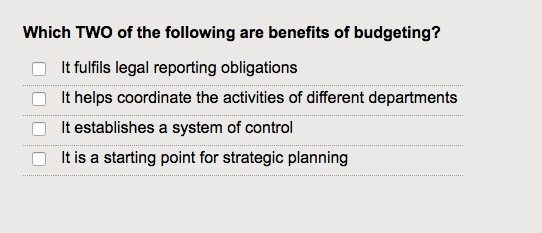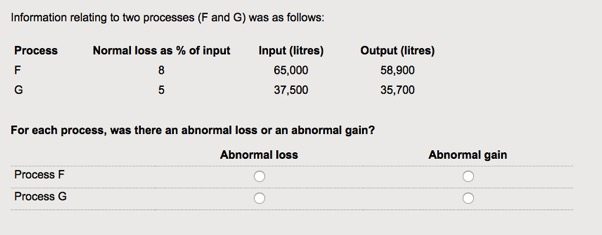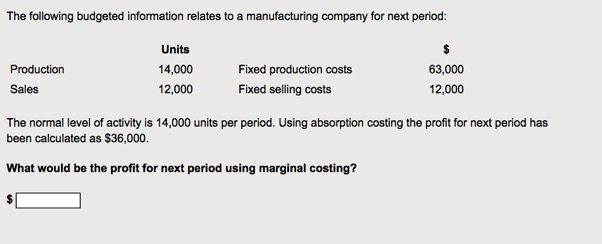In this tutor interview series, we chat with ACCA F2 tutor Lynn Watkins and find out how to pass the Management Accounting exam with flying colours! Chartered Accountant Lynn Watkins has around 20 years of experience helping students pass foundation level management accounting exams for ACCA and several other professional accounting qualifications.
We sat down with her and asked her what students need to do to pass ACCA Management Accounting (formerly F2) exam. Here’s a hint: exam technique is critical! Find out what she had to say below.
Introducing…. How to Pass ACCA F2 with Lynn Watkins
Learnsignal: Lynn, hi! Thanks for making time to have a chat about ACCA F2.
Lynn: No problem; I’m happy to help. I’ve spent around 20 years helping students pass foundation level management accounting exams, so I’ve been doing this kind of thing for a long time! Shall we start with an overview?
Learnsignal: Great.
Lynn: ACCA F2 introduces students to management accounting. Students will be learning the techniques you’d use in an office but from a very technical point of view. So in an office, you might actually do things quite differently, but ACCA F2 teaches you the groundwork. You’re learning the theoretical foundations for why you might do X or Y.
The main purpose is to develop your understanding of management accounting techniques that a business might need to use in various contexts, to support management decision-making.
Learnsignal: What does the syllabus look like?
Lynn: The syllabus is largely focused on learning practical management accounting techniques. There’s a context around this, but the bulk of the paper centres on the techniques.
There are five main parts to the syllabus, A to E:
A – The Nature, Source and Purpose of Management Information
B – Cost Accounting Techniques
C – Budgeting
D – Standard Costing
E – Performance Measurement
Standard Costing includes variance calculations, which are a big part of the syllabus, and Budgeting is a substantial part too. Budgeting actually includes a lot of information you might not expect because it is very broad. For example, you’re going to cover budget preparation, but you’re also going to cover discounted cash flow techniques. That’s a massive area in itself.
The syllabus takes you through the nature and purpose of management information, and through the techniques you use to gather that information. It then concludes by considering the ways you can use that information to measure and control business performance. ACCA F2 feeds into ACCA F5, so the journey the syllabus takes you on is fairly similar. You’re learning the fundamental concepts in F2, and you’ll build on them in F5 and then again in P5.
Learnsignal: So is ACCA F2 just about learning a series of facts?
Lynn: No it isn’t just about facts. It’s about learning certain techniques and you certainly can’t get away with rote learning the material. To pass ACCA F2 you need to demonstrate you understand; apply your knowledge. There might be a few questions you can answer really quickly that test if you know a fact, but there aren’t many.
One of the reasons students don’t pass ACCA F2 is that they don’t understand how to apply the material.
That’s one of the reasons students don’t pass ACCA F2. It’s generally because they’re not applying themselves to understanding the content in the application. Most students understand most areas of the syllabus because it’s not hugely complicated, but when you ask them to apply it they can’t.
Learnsignal: What other mistakes do students make on ACCA F2?
Lynn: The content isn’t the major problem here. As I say, most people don’t find the ACCA F2 syllabus too difficult, but many let themselves down in the actual exam.
Exam technique plays a huge role here. Many students who didn’t pass ACCA F2 could have done, if they’d avoided some basic errors in exam technique.
For instance, students often fail to read a question properly. Or they haven’t practised their exam timing and run out of time to answer all the questions. At this level, the main reason students fail is poor technique.
At this level, the main reason students fail to pass ACCA F2 is poor technique.
I wish students knew the most important thing is to practice as many questions as possible. That’s how you learn to apply your knowledge. You need to understand the type of questions you could be asked and learn what they’re looking for from you. Once you’ve acquired the knowledge, just practice as much as possible. The more questions you’re exposed to, the better you’ll do in the exam. And you’ll identify areas you need to focus your study on a bit more, so it’s a really helpful revision technique.
The more you practice, the more scenarios you see, and then the better you’ll understand what you have to do to pass ACCA F2. The more practice questions you’re exposed to, the better you’ll do in the exam because the better you’ll understand the paper.
Learnsignal: Let’s look at exam technique then. How is the ACCA F2 paper structured?
Lynn: ACCA F2 has two sections, Section A and Section B.
The first section, A, has 35 questions. These are all objective test questions, worth 2 marks each, so this is 70% of the paper. These questions can be on any area of the syllabus and all five sections will be examined here.
Section B is worth 30% and is made up of 3 ten-mark questions called multi-task questions. They’re almost like lots of little objective test questions, but they all relate to a single scenario for each question. Section B questions will only draw on Budgeting, Standard Costing and Performance Measurement.
Learnsignal: What are objective test questions?
Lynn: Students often ask about the difference between multiple-choice questions and objective test questions. Multiple-choice questions are a type of objective test question.
The four main types of questions are:
- Multiple choice
- Multiple response
- Multiple response matching
- Number entry
Multiple choice questions ask you to select one answer from 4 options, while multiple response asks you to select between 2 and 4 correct answers from a number of options.

Multiple choice question from ACCA F2

Multiple response questions from ACCA F2
That’s exactly what I mean about not reading the question properly. Many students might choose one option when they’re been clearly asked for two, and you’re just throwing away marks. The marks aren’t split, so you can’t get half the marks if you don’t get all of the questions right. It’s worth taking that extra moment to ensure you’ve properly read and understood what you’re being asked for.
Then multiple responses to matching questions give students a number of options and ask them to match the right answers. So you’ll have two or more columns and have to decide which items on the left are matched, or paired, to which items on the right.

Multiple response matching question from ACCA F2
Then lastly, you’ve got number entry, which is where you’re asked to perform a calculation and input your answer.

Number entry question from ACCA F2
This is another area where students often make mistakes. They might well know the calculation, but they don’t read the requirements properly and calculate the wrong figure. Maybe they calculate unit cost instead of percentage, for example.
Learnsignal: So do you need a lot of maths for this paper?
Lynn: Well, it’s certainly hoped that most people will have a grounding in maths, but you don’t have to know loads. It’s about not being afraid of it. In terms of assumed knowledge, it’s assumed you can do basic multiplication, division, ratios and percentages. The old ACCA F2 equivalent actually used to have a lot more basic maths, but now you don’t need much maths grounding.
Learnsignal: OK, thanks, Lynn. What tips can you give students for handling objective test questions?
Lynn: For a paper like this it’s very general advice, but time management! The thing that students do wrong is that they run out of time because they spend too long on questions at the beginning.
Time management is absolutely critical. You have to be strict. Allow just over 2 minutes for 2 mark questions.
If a question is worth 2 marks and you fiddle around for 5 minutes, you’re not going to pass ACCA F2 because you won’t have time to complete the paper. Each mark has a time allocation of 1.2 minutes, so you shouldn’t spend more than just over 2 minutes on a 2-mark objective test question. If you start spending more than 5 minutes on it, you need to move on and make a guess because you’re likely to run out of time to attempt questions you could answer later on.
Learnsignal: And what about Section B? What are multi-task questions?
Lynn: For multi-task questions, students will be given a fairly meaty scenario and lots of little questions to answer, with similar types of questions to Section A.
Learnsignal: Are they narrative questions? Do you have to write long-form?
Lynn: No, not at all. ACCA F2 is actually being phased out as a paper-based exam, so most students sit this at a computer. A computer marks the exam, so there can’t be answers that demand human interpretation.
Section B is very similar to Section A in format, except you’ll get a few questions – or tasks – all relating to the same scenario in more depth instead of lots of unrelated questions.

Multi-task question from ACCA F2, Section B
Learnsignal: Can students still sit ACCA F2 as a paper-based exam?
Lynn: It depends on where you are. The paper-based exam is being phased out market by market.
What this does mean for students is that you really can’t question-spot at all. That’s really important to point out. You have to learn the entire syllabus. The computer-based format means the questions are automatically generated for each student, each time – there’s not one single paper for the entire session.
Learnsignal: So students have to work through the entire syllabus methodically if they want to pass ACCA F2?
Lynn: Yes, you certainly have to cover all of it! Although students might find some areas take more time to get to grips with if they find that area difficult.
Learnsignal: Which areas do students tend to find most difficult?
Lynn: From feedback from students I teach, I think Absorption and Marginal Costing is an areas students can sometimes find difficult. Fixed Overhead Variances can be an area students struggle with too actually.
Students sometimes struggle with Fixed Overhead Variances, but the syllabus itself isn’t very complex. It’s most important that you practice as much as possible so you can learn how to apply your knowledge in the exam.
There are lots of variances students have to learn. The fixed overheads are slightly more complex because they can be subdivided into volume and expenditure variances. ACCA F2 isn’t hugely complicated, though, and most students can easily understand the material. You just have to ensure you understand how to apply your knowledge in context, as I mentioned earlier. I tell my students to spend time learning the material, but as soon as possible, you want to start testing their knowledge using practice questions. That’s the most important advice I can give – don’t just learn the material; learn how the ACCA F2 exam works!
Learnsignal: Lynn, thank you for sharing your advice; it’s very much appreciated.
Lynn Watkins qualified as a Chartered Accountant in 1992 and moved into financial publishing in 1997. She was an in-house writer for BPP Professional Education for nearly a decade, authoring management accounting, business mathematics and statistics titles for qualifications including AAT, ICSA, CIMA, CAT and ACCA. Lynn works as a tutor and has extensive experience teaching foundation level management accounting papers. Lynn brings her considerable experience to bear for Learnsignal where she authors our Management Accounting course.
Check out our course on Management Accounting









